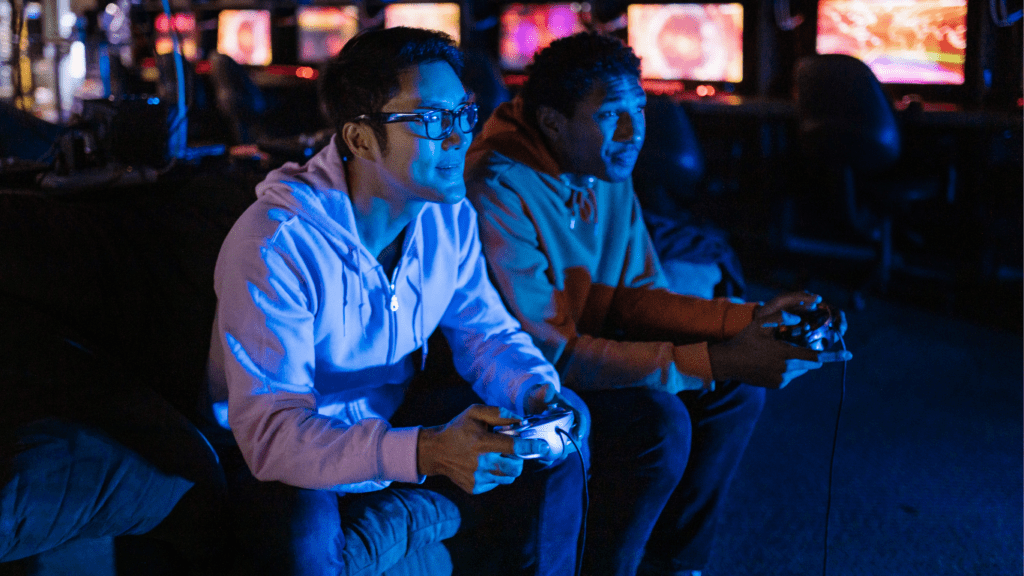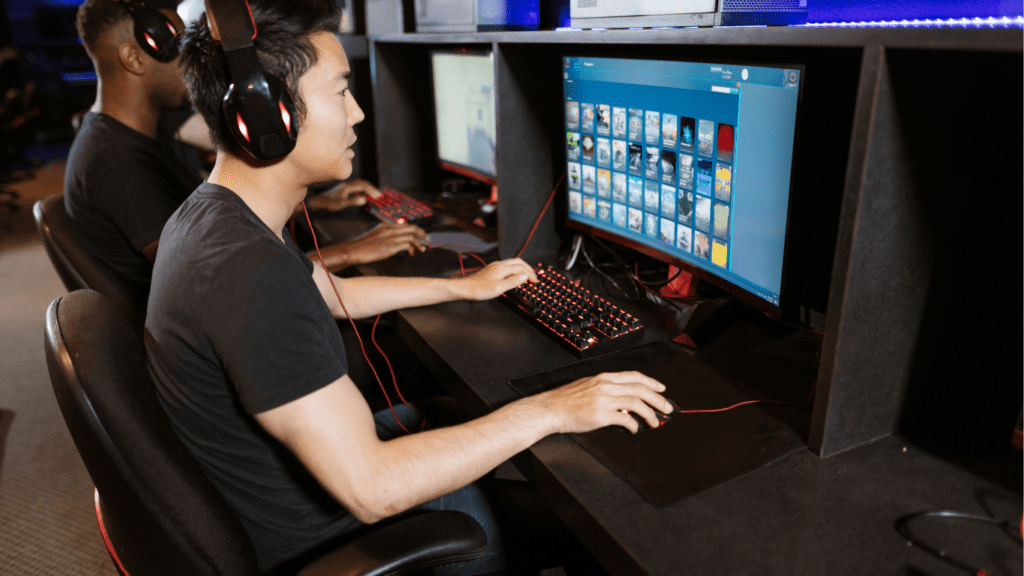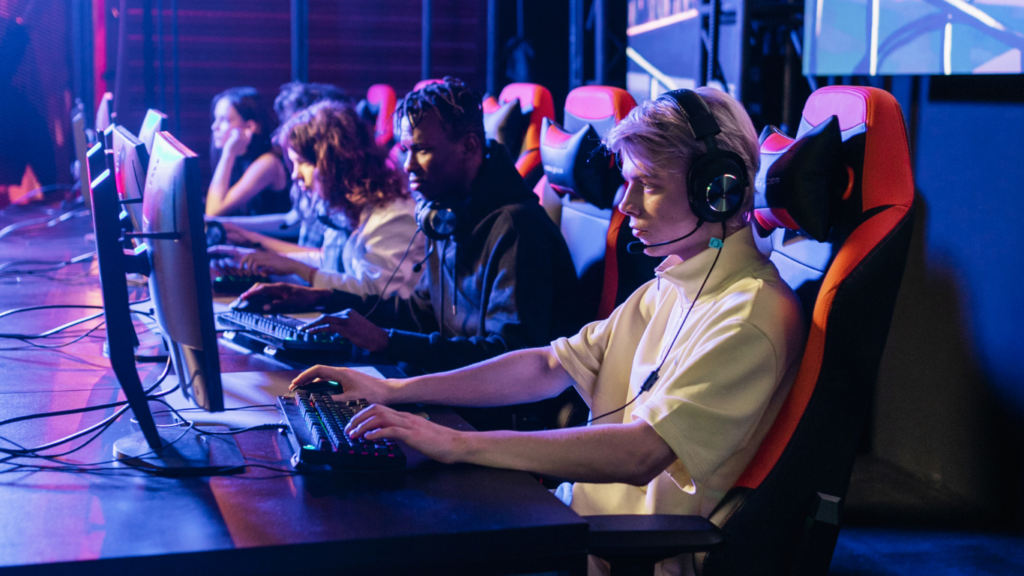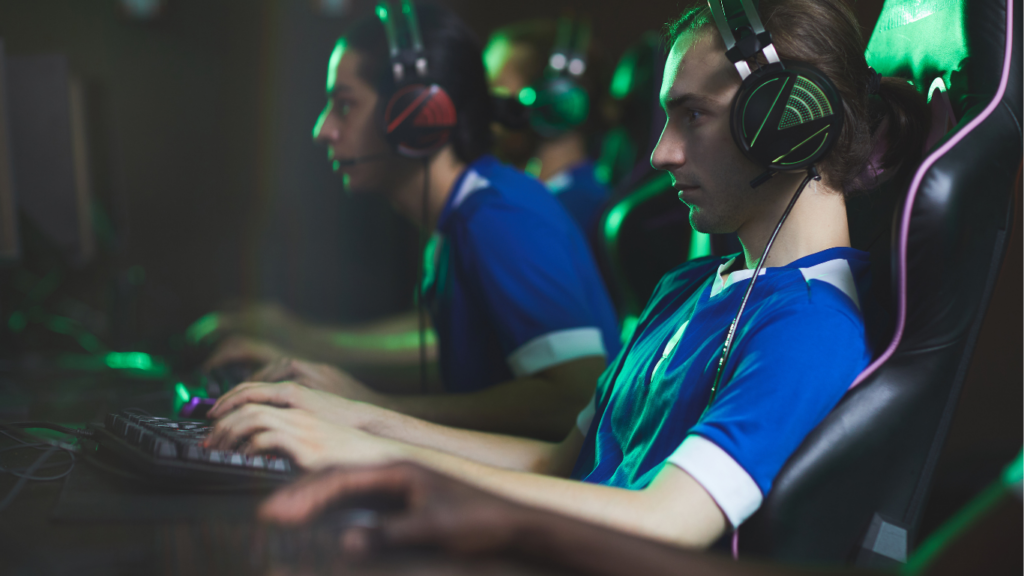Understanding the Esports Landscape
Esports has become a global phenomenon with millions of fans and players worldwide. Transitioning from a casual gamer to a professional in this dynamic sector demands a keen understanding of several key components.
The Rise of Esports
The esports industry has witnessed exponential growth, driven by technological advances and increased accessibility. According to Newzoo, the global esports audience reached 495 million in 2020. Major tournaments offer multi-million dollar prize pools, attracting attention comparable to traditional sports. Organizations like Riot Games and Blizzard Entertainment host high-profile events, making esports both lucrative and competitive.
Popular Esports Games to Consider
Choosing a game to focus on is crucial for aspiring esports professionals. Some of the most popular titles include:
- League of Legends (LoL): A multiplayer online battle arena game with a vast global fanbase.
- Counter-Strike: Global Offensive (CS:GO): A first-person shooter known for high-stakes tournaments.
- Dota 2: Famous for its grand tournament, The International, offering substantial prize money.
- Fortnite: A battle royale game known for its engaging gameplay and streaming popularity.
- Overwatch: A team-based shooter that combines elements of shooting and strategy.
Each of these games offers competitive leagues and frequent tournaments, providing ample opportunities for dedicated players to showcase their skills.
Assessing Your Skills and Interests
Developing an esports career starts with understanding your gaming talents and preferences. Recognizing these elements helps focus efforts effectively.
Identifying Your Strengths
Examining personal gameplay can reveal unique strengths. I ask myself questions during analysis: Do I excel in strategy games like StarCraft, or shine in first-person shooters like Call of Duty? Understanding my playstyle, such as aggression or defense, guides my focus. Recording game sessions and reviewing them highlights areas of excellence and potential improvement. Feedback from peers offers additional insight into my capabilities and strengths.
Choosing the Right Game for You
- Selecting the right game builds the cornerstone of an esports career.
- Consider games that match my strengths and interests, like team-based games if I communicate well or solo games for a strategic mind.
- Evaluating time commitment and practice demands for games informs realistic choice.
- Popular esports titles, like League of Legends or Dota 2, offer structured pathways for rising talent.
- Analyzing current trends and staying informed helps choose a game with growing communities and tournament opportunities.
Building Your Online Presence
An online presence serves as a vital component for aspiring esports professionals. Showcasing your skills and connecting with the community enhances visibility and increases opportunities.
Setting Up Social Media Profiles
- Popular platforms such as Twitter, Instagram, and Twitch play significant roles in the esports scene.
- Create profiles using a consistent gamer tag to build brand identity across platforms.
- Consistency in names and profile pictures helps audiences recognize me easily.
- By posting clips of my gameplay, I demonstrate my skills to potential followers and industry players.
- Also share insights, tournament updates, and personal gaming milestones, which keeps my audience engaged and informed.
Engaging with the Gaming Community

Actively participating in gaming forums and social platforms connects me with other gamers and industry professionals. I comment on threads, join discussions, and share my experiences on platforms like Discord and Reddit. Networking can lead to collaborations with other gamers, teams, or sponsors. By consistently contributing insightful content and feedback, I establish myself as a dedicated and knowledgeable member of the gaming community.
Improving Your Gameplay
Improving my gameplay transforms me from a casual gamer into a competitive pro. I combine strategic practice and the study of professional gamers to elevate my skills.
Practicing Effectively
Effective practice demands consistency and focus. I dedicate specific hours daily to gaming, ensuring that practice aligns with optimal performance times. Using tools like game analytics software, I review my gameplay to identify strengths and address weaknesses. Practicing with a purpose, not mindlessly playing, enhances my skill development. I set goals for each session, whether it’s mastering a new strategy, learning character abilities, or improving reaction times.
Learning from Professionals
Studying professional gamers offers valuable insights into advanced tactics. I watch streams and recorded matches from top-tier players to understand their decision-making processes, strategies, and positioning. Platforms like Twitch and YouTube showcase a variety of pro-level content where I can analyze gameplay style differences. Engaging with these experts through Q&A sessions or community forums provides additional learning opportunities and perspective on varying game dynamics.
Competing in Tournaments
Participating in tournaments elevates your gaming career from amateur levels to professional heights. Testing skills against other dedicated players is crucial.
Finding Local and Online Competitions
Locating suitable tournaments is the first step in competing. I recommend starting local, where smaller-scale events offer an ideal environment for beginners. Check game-specific forums, local gaming stores, or social media groups for announcements. Online platforms like Battlefy and Toornament list a variety of competitions, facilitating easy entry for all experience levels. These platforms help you find both casual and serious events, catering to different skill tiers and game types.
Preparing for Your First Tournament
Preparation is key to succeeding in your first competitive event. I suggest studying tournament rules and formats to avoid surprises. Practice regularly against varied opponents to hone adaptability. Focus on physical and mental well-being; ensure adequate sleep and nutrition before event days. Don’t underestimate the importance of mindset—stay confident but flexible, ready to learn from every match you play.
Networking with Other Gamers
Connecting with other gamers is essential for progressing from casual to professional. Building relationships within the gaming community opens doors to valuable advice and opportunities.
Joining Gaming Communities
Active participation in gaming communities boosts exposure and fosters connections with like-minded individuals. I join forums like Reddit’s r/gaming or Discord servers dedicated to my chosen game to engage with others. This interaction not only enhances my understanding of the game but also introduces me to potential team members and collaborators. Sharing my experiences and learning from others builds a supportive network that’s crucial for growth.
Attending Esports Events
Being present at esports events provides firsthand exposure to the competitive scene. I attend local tournaments and larger conventions to meet players, coaches, and industry professionals. These events offer chances to observe top-tier gameplay, understand the pressure of competition, and learn tactics employed by successful teams. Networking in person strengthens relationships, and direct interactions often lead to meaningful collaborations.



 Founder & Chief Editor
Elaine Griffindorry is the visionary founder and chief editor of Sprint Scoop News. With over 15 years of experience in sports journalism, Elaine has a passion for breaking news, in-depth sports analysis, and insightful coverage of the business side of sports. She launched Sprint Scoop News to offer a fresh perspective on the world of sports, combining cutting-edge reporting with expert commentary on health, fitness, and esports. Elaine’s leadership ensures the site remains a trusted source for sports fans and professionals alike.
Founder & Chief Editor
Elaine Griffindorry is the visionary founder and chief editor of Sprint Scoop News. With over 15 years of experience in sports journalism, Elaine has a passion for breaking news, in-depth sports analysis, and insightful coverage of the business side of sports. She launched Sprint Scoop News to offer a fresh perspective on the world of sports, combining cutting-edge reporting with expert commentary on health, fitness, and esports. Elaine’s leadership ensures the site remains a trusted source for sports fans and professionals alike.
